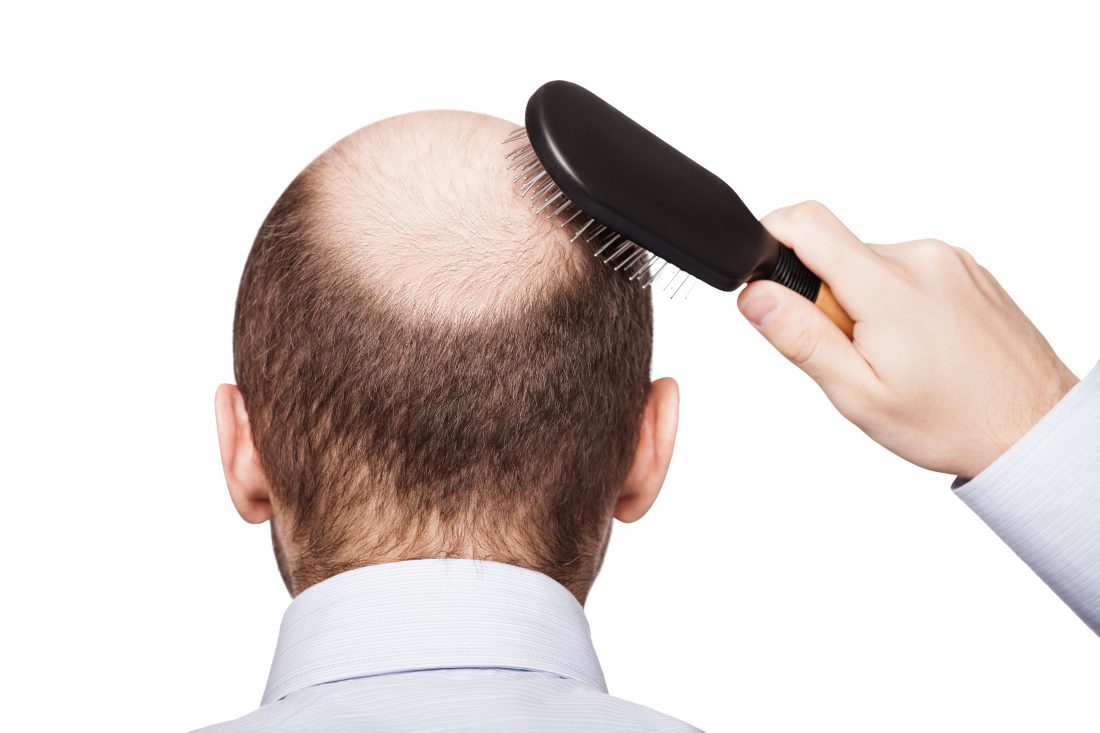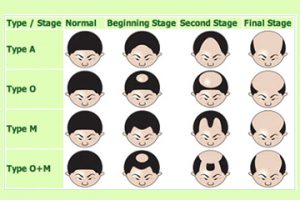It is true that men are more likely to lose hair than women; it is due to male pattern baldness (it is discussed below in detail).
Causes of hair loss can range from the simple & temporary – a vitamin/mineral deficiency – to the most complex, like an unrevealed health condition. There are ways to treat male hair loss. It all depends on its causes.
Here are some general and some rare causes of hair fall.
Stress:
Severe physical stress (like having an accident) or severe emotional stress (like a death in the family) can have unusual effects on our body. Extreme stress usually sends the body into the situation of shock, which results in disturbing various hormones and metabolites. This may lead to shedding of hair known as telogen effluvium. While the effects of severe stress on hair are well understood, mostly this type of hair loss is long term.
Mineral / Vitamin deficiency:
Whether it is because of not proper diet, starvation, some biological or genetic defect, deficiencies in certain minerals or nutrients can cause hair loss. Apparently the most common deficiency that affects directly to hair loss is iron. If iron is severely low it can lead to iron-deficiency called anemia – a condition that causes the body not to make enough red blood cells. Red blood cells are very important because they carry oxygen to every cell in the body and help those cells in maintaining normal functions. Deficiencies in other nutrients such as vitamin B and protein results in hair loss as well.
Medication:
Most of us are well aware that chemotherapy drugs can obviously lead to hair loss, but, in fact, there are numerous other drugs that may cause hair falling out. These include anti thyroid medicines, anti-coagulants, anti-convulsants (for epilepsy), beta-blockers, and many more. These medications ultimately cause telogen effluvium – a fast hair shedding that occurs when a huge number of hair unexpectedly shift from a growth phase -known as anagen- to a resting phase -known as telogen-, and then fallout when new hair begin to grow.
Infection:
However, a number of infections can results in hair loss but the most common infection that affects the hair and scalp is ringworm. Ringworm is actually produced by a fungus; its scientific name is Tinea capitis. It is caused by mold-like fungi called dermatophytes that grow in warm, moist conditions and usually arise due to poor diet. While it affects mostly children, it can be caught at any age.
Immediate weight loss
Dramatic weight loss is a form of physical trauma that can results in thinning hair. This can happen even if the weight loss is good for you. It is the possibility that the weight loss is stressing your body, not having good diet can result in mineral or vitamin deficiencies. Loss of hair along with prominent weight loss may also be a sign of unhealthy diet.
Autoimmune disease:
If you are suffering from arthritis or diabetes, you have already been dealing with autoimmune diseases that occurs when the body’s own immune system accidentally attacks and destroys healthy tissue of body. When the body’s immune system attacks cells, hair follicles or tissues important to hair growth, it can result in hair loss. This type of hair loss can be temporary or permanent, depending on affected tissues.
Hypothyroidism:
Thyroid is a small gland positioned in the front of the neck just below the voice box. It plays a significant role in controlling the body’s metabolism by transmitting various hormones. Hypothyroidism is an underproduction of some hormones and it results in patchy hair loss known as alopecia areata.
Over styling:
This reason is a bit more fit on women, but even men should know that wearing tightly pulled back hair (like in a ponytail or a braid) can cause hair loss. Its scientific name is traction alopecia, which is caused by pulling of the hair. It results to fast hair loss, mostly at the hairline. While it is most commonly seen in African women, it is also seen in men who wear hair pieces in the same location on the head for the long period of time.
Male pattern baldness:
This is the leading cause and we can’t do much to avoid it. Male pattern baldness, scientifically known as androgenetic alopecia, indicates to hair thinning in an “M-shaped” hair pattern that is usually mentioned when men talk about balding. With the passage of time, the hair follicles will transform and shrink which lead to thin hair. Many treatments are available to overcome this problem but they are not guaranteed to work, the best recommendation is Fue hair transplant.
Author Bio:
Saima Sharif is a passionate content writer. My major interest is writing content on topics such as hair fall, hair solution, hårtransplantasjon , home remedies for hair problems or any treatment related to this. My current adventure is myhairclinic (Pakistan Oslo and London).





